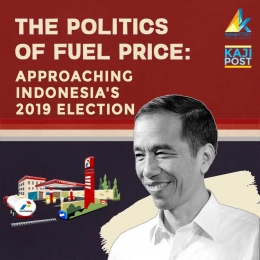However, the inefficiency of short-term policies does not justify downplaying the concern of voters over their short-term livelihood. It is not symmetric to compensate the removal of a short-term welfare program, in this case fuel price control, with long-term infrastructural projects. Instead, subsidy reform must be complemented by alternative welfare programs that are efficient and targeted.
To be fair, Jokowi did enhance Indonesia's social safety net through BPJS and KIS, but they received less spotlight than his infrastructure projects. As a result, it seemed more that fuel subsidy was being traded with bridges and roads instead of free healthcare.
In the end, the blatantly political nature of Jokowi's decision might also be why it is excusable. Jokowi's agenda for economic development, in particular constructing a badly needed network of hard infrastructure, requires commitment beyond five years. Since his political opponents do not exhibit as much ambition in infrastructure projects, it becomes critical for him to secure another term.
At the same time, Jokowi's image of humble, pro-poor populism has been waning. He is increasingly associated with his more neo-liberal policies of inviting foreign workers and instituting private student loans. So if populist price controls are the only way for him to restore his grassroots image and win the upcoming election, we should accept them as a necessary evil for Indonesia's long-term development.
Disclaimer: The views expressed in this article are those of the author and do not necessarily reflect the official stance of Kanopi on the issue.
Oleh I Gede Sthitaprajna Virananda | Ilmu Ekonomi 2016 | Kepala Divisi Kajian Kanopi 2018
Baca konten-konten menarik Kompasiana langsung dari smartphone kamu. Follow channel WhatsApp Kompasiana sekarang di sini: https://whatsapp.com/channel/0029VaYjYaL4Spk7WflFYJ2H







